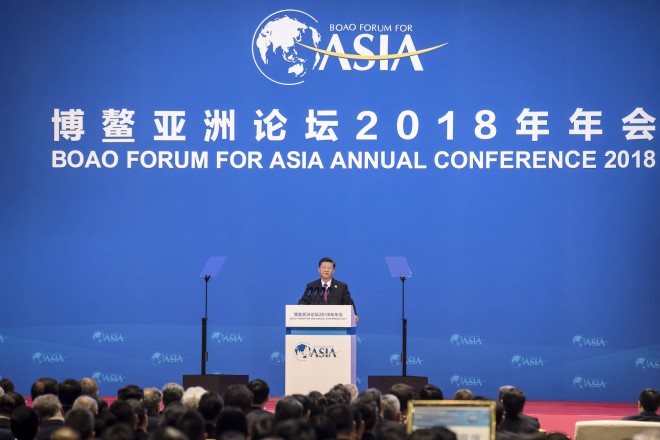
Foreign investment opportunities in China's emerging industries over the next 40 years
For 40 years China has opened up to the outside world, but its tendency to protect its home-grown industries has, however, stifled foreign investment.
But as Beijing seeks capital flow from outside to cushion the economic downturn, especially amid the escalating trade war with the United States, new opportunities for foreign investors are opening up.
In June, Beijing announced a long-anticipated easing of foreign investment curbs on sectors including banking, the automotive and heavy industries, and agriculture, as it moved to fulfil its promise to open its markets further.
This comes a year after restrictions were also eased or removed in emerging industries, such as the manufacture of new energy vehicles and civil satellites. The Chinese government had then promised to grant incentives to foreign investors who enter high-tech industries as well, like that of virtual and augmented reality devices.
The recent reforms are also seen as a bid by the country to transform its economy, especially in high-end manufacturing, services and green industries, and a testament of Beijing’s determination to push forward with economic reforms.

At the Boao Forum for Asia 2018 in April, China’s President Xi Jinping described economic globalisation as an irreversible trend and stated that China would continue opening up.
Globally, China is the second-biggest economy after the US, and its share of the world economy has grown from a mere 1.8 per cent in 1978 to 18.72 per cent in 2018, according to the International Monetary Fund (IMF).
But while foreign direct investment flows into China rose by 8 per cent in China in September 2018, the fear is that investment could slow in the medium-term if the trade conflict persists.
Official figures already show that Guangdong has seen a fall in foreign investment in the first half of 2018, down to 79 billion yuan (US$11.5 billion) compared to US$12.3 billion for the same period in 2017. And this might not account for the full impact of the ongoing trade war.
The recent reforms are expected to excite foreign investment interest, by allowing foreign firms to compete on an equal footing with domestic firms in the various sectors.
The National Development and Reform Commission, China's top economic planner, has further reduced the number of industries on the ‘negative list’, where foreign investment is limited or prohibited, from 63 to 48.
Beijing has also pledged to remove ownership limits fully on industries such as insurance and autos within the next three to five years, and ease or scrap ownership caps on businesses including ship and aircraft manufacturing, power grids and the breeding of crops, excluding wheat and corn.
Aside from barriers to entering certain sectors, China has been criticised as well thanks to the demands made of companies who do invest, such as the transfer of valuable technology.
But China has given the assurance that it would treat foreign firms fairly by protecting the business interests of overseas firms and punishing those who infringe on their legal interests, especially theft of intellectual property rights.
With the lowering of barriers to foreign investments, and the promise that overseas firms will be playing on levelled ground, the foreign investment opportunities in China over the next 40 years are expected to grow in abundance.
